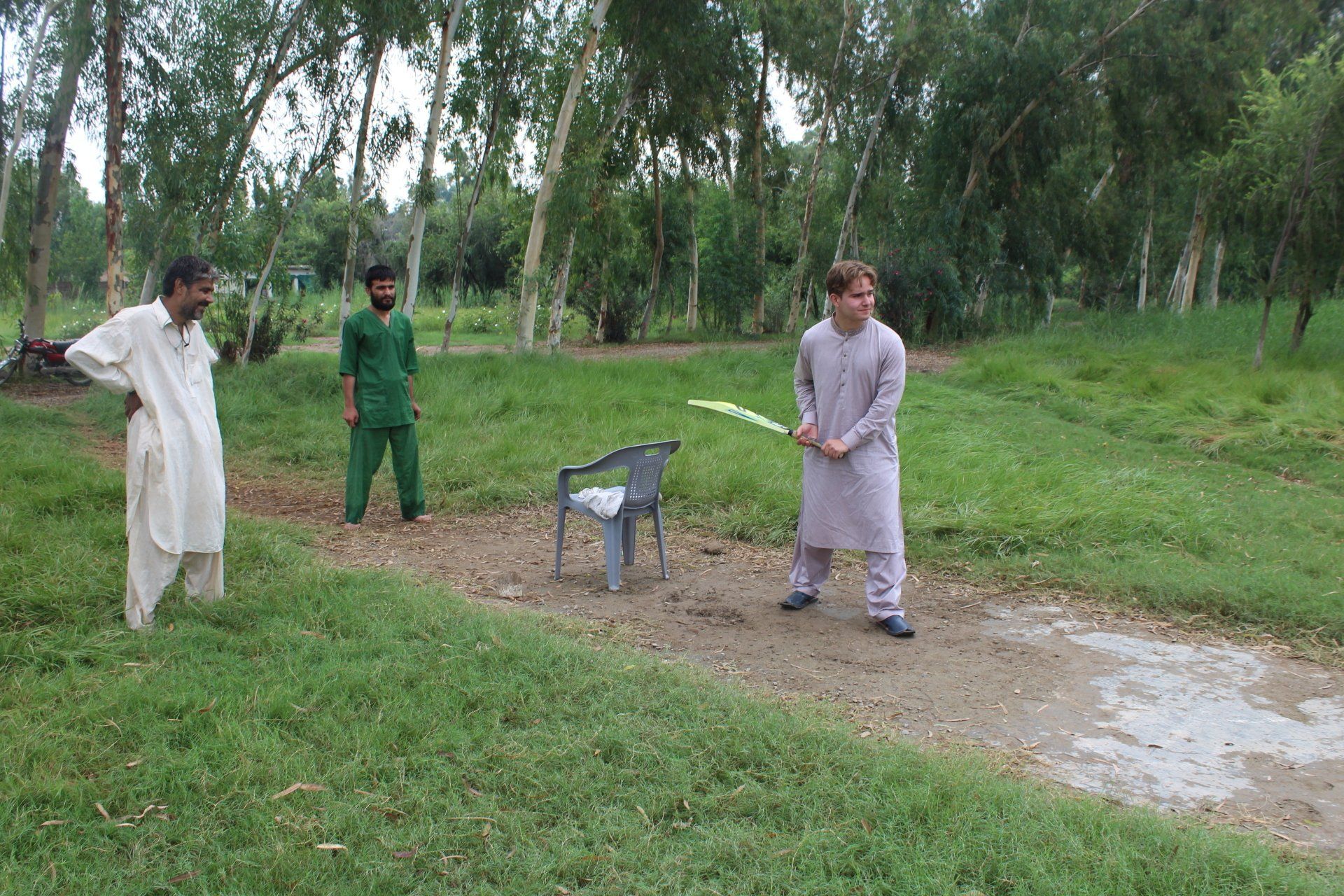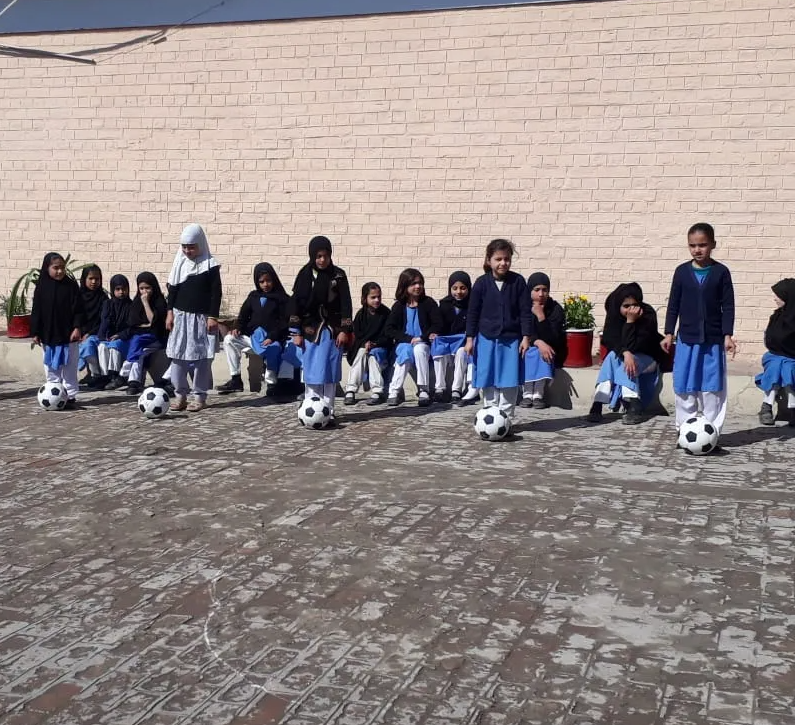
ILMPOSSIBLE: Take A Child to School (TACS) programme is supported by British Council and Qatar Foundation since 2014. The main goal of the project is to enroll Out Of School Children (OOSC) from age 6-11 years in primary schools. The project also ensured retention of the enrolled children for a period of 18 months through youth volunteers called ‘ ILMbassadors’ .
● 27 three day capacity building training for youth on Article 25- A of the Continuation of Pakistan and community engagement.
● Trained 845 youth as ILMBassadors.
● 11573 OOSC were enrolled by the trained volunteers in 73 target schools.
● The enrolled children include 4744 almost 41% girls.
Dosti programme is implemented in 28 schools in District Peshawar focusing on creating child friendly environments through activity based learning and reduce drop-outs at primary school level. Teachers were trained in schools to roll out Dosti programme in their schools, and the schools were provided sports kits.
● 28 Schools were engaged in Dosti activities in Peshawar.
● 72 teachers were trained and engaged over 8600 children in Dosti activities.
Mohalla Committees (MC’s) were formed in the respective communities and the Committee members were trained to effectively oversight the enrollment and retention activities in the schools in their communities.
● 10 MC’s were formed in the target District.
● 1 MC was registered as a Community Based Organisation.
Generation Amazing (GA) programme focused on sports based learning opportunities for teachers to create a child friendly environment in their schools. The children were engaged in sports activities to achieve better developmental goals.
● 08 GA activities were conducted in schools in District Peshawar.
DOST’s Internship and Fieldwork Programme are providing opportunities to students of different universities of Khyber Pakhtunkhwa since inception in 1992.
● On average over 1000 students from more than 20 educational institutions are facilitated under the programme every year.
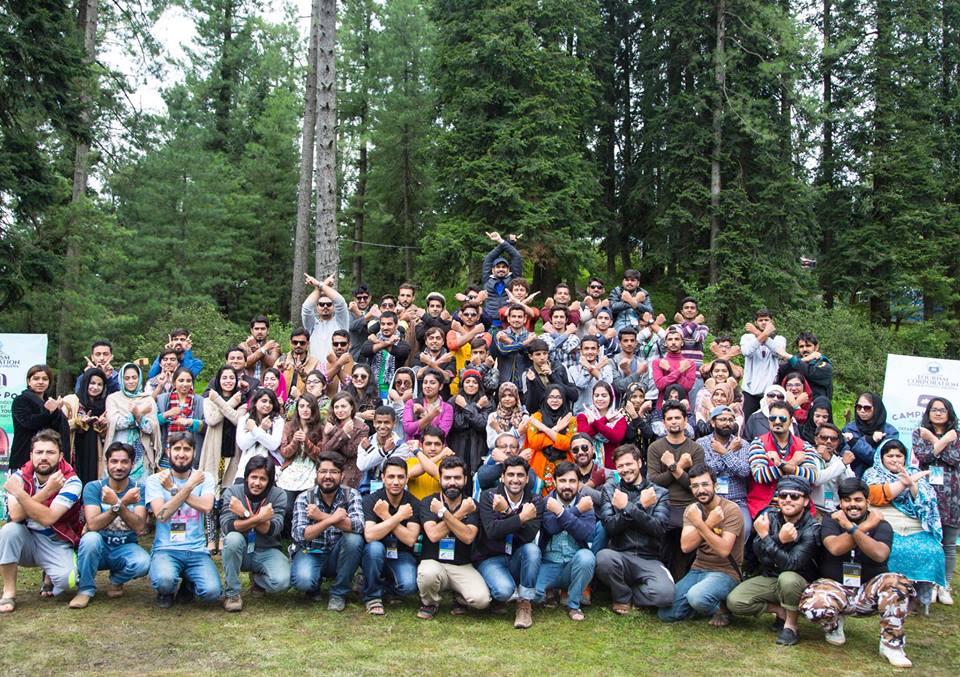
DOST has invested heavily in the capacity building of youth and teaches them to be socially responsible citizens.
Through partnerships with the British Council, youth in many different settings are trained and provided skills to identify issues in their community. They then work with the community through Social Action Projects to solve those problems. DOST has helped to organise boot camps in beautiful locations, and youth form all over the country travel to participate in these. To date, over 1500 youth have been trained in the Active Citizens Programme.
i. Active Citizens Youth Programme supported by the British Council and Voluntary Services Overseas has become a core activity of the community development programme since 2009. The programme works directly with young people in different settings and reaches out to communities through social action projects. The youth act as ‘Change Agents’ in community sensitization and resource mobilization to address social issues in the communities.
● DOST has trained over 1400 youth and implemented over 48 Social Action Projects (SAPs), reaching over 75000 direct and indirect beneficiaries.
● DOST has received 08 national social action project awards from British Council Pakistan in recognition of IMPACT in the communities.
DOST’s WE-ACT programme is conducted in educational institutions including schools, colleges and universities of Khyber Pakhtunkhwa to train youth on citizenship, community sensitization and development, advocacy and on DOST thematic areas.
DOST WE Boot Camp
is a residential conference providing a platform for youth to learn and share their ideas in the presence of experiences trainers and speakers. DOST’s has successfully conducted six seasons of Boot Camps in different remote hilly areas of Khyber Pakhtunkhwa.
● The event has attracted over 1100 youth participants from 52 districts of Pakistan.
● The event has also successfully engaged diplomats, motivational speakers, trainers, entrapreneurs, representatives of GO’s and NGO’s.
Theatre for Voter Education,
DOST youth wing successfully performed 56 theatre performances in two districts of Khyber Pakhtunkhwa.
● Over 6500 community members were directly reached out during the programme with appropriate information on the electoral before 2013 local government’s election in the Province to increase public participation in the election process.
Theatre for education
also successfully engaged the community in 10 theatre performances.
● The performances were conducted in ten districts of Khyber Pakhtunkhwa to support the government enrollment drives in the provinces.
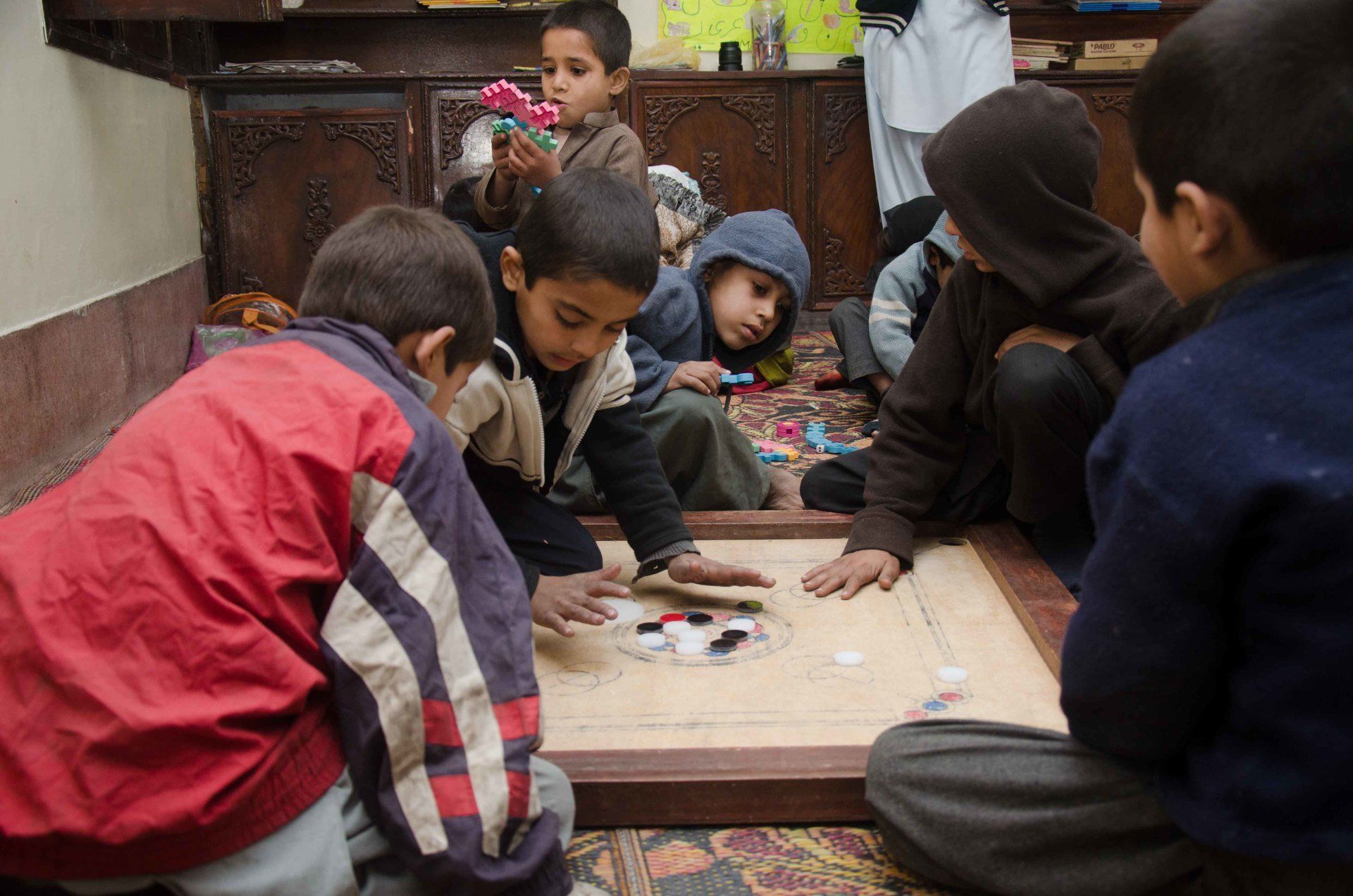
DOST works with the most vulnerable groups in prisons, which include women and children, juvenile offenders, drug addicts and others. These prisoners are at greater risk of abuse and exploitation than others and also lack the social support of their families.
"DOST is the only NGO I will welcome to this jail, we work together as partners... No prisoner who has been through DOST's program has returned to this prison".
Mr Khalid Abbas - Peshawar Prison Superintendent
Women and Children, and Juveniles
Women in prison are incarcerated on various charges, but most are victims of poverty, injustice, abuse and exploitation. The majority of these women are charged with drug trafficking and are often rejected by their family and so have nowhere to go on their release. Many of these women have their young children in the prison with them or arrive at the prison pregnant. For these children there are limited opportunities and they suffer from impeded physical, mental and social growth and development due to poor nutrition, lack of health care, education and social interaction beyond the prison confines.Juveniles are also detained mostly on drug carrying and vagrancy charges. Once in prison, they lose total contact with the outside world and are presumed missing or dead. In the prison, they are victims of exploitation, depression and anxiety with no hope of release.
For these people, DOST creates self-help, healing communities that provide human rights protection and rehabilitation services. Abuse and exploitation has virtually stopped in all the prisons where DOST works. Services provided by DOST include psychosocial counselling, life skills education, legal aid, healthcare, recreational activities, and vocational skills development. The juveniles and minor children receive formal and non-formal education.
Stand out firmly for justice as witnesses to Allah, even as against yourselves, or your parents, or your kin, and whether it be rich or poor.
Al-Quran, 4:105
Drug Addicts
Drug Addicts were the most marginalised of all the prison inmates, living in filthy and overcrowded conditions, and denied most of the facilities available to the other prisoners. DOST built a new barracks in which a therapeutic community for drug users has been established. They are given complete treatment and rehabilitation services, and the same facilities allowed to the other prisoners. They are now helping prison authorities to identify and weed out drug abuse within the prison.
"I have high regard for the work you are carrying out with prisoners who have drug abuse problems. I was particularly interested to observe that the foundation adopts a holistic approach that embraces not only the prisoners, but also their families and the communities into which they return when they are released. I believe that this approach is not only humane, but also effective in preventing and treating drug abuse, and rehabilitating the victims.
the UNODC is currently developing a programme to improve drug abuse and HIV/AIDS prevention in the prisons of Pakistan. I hope DOST will consider participation in that project and contribute its expertise and experience".
Antonio Maria Costa,
Executive Director of UN office of Drugs and Crime (UNODC)
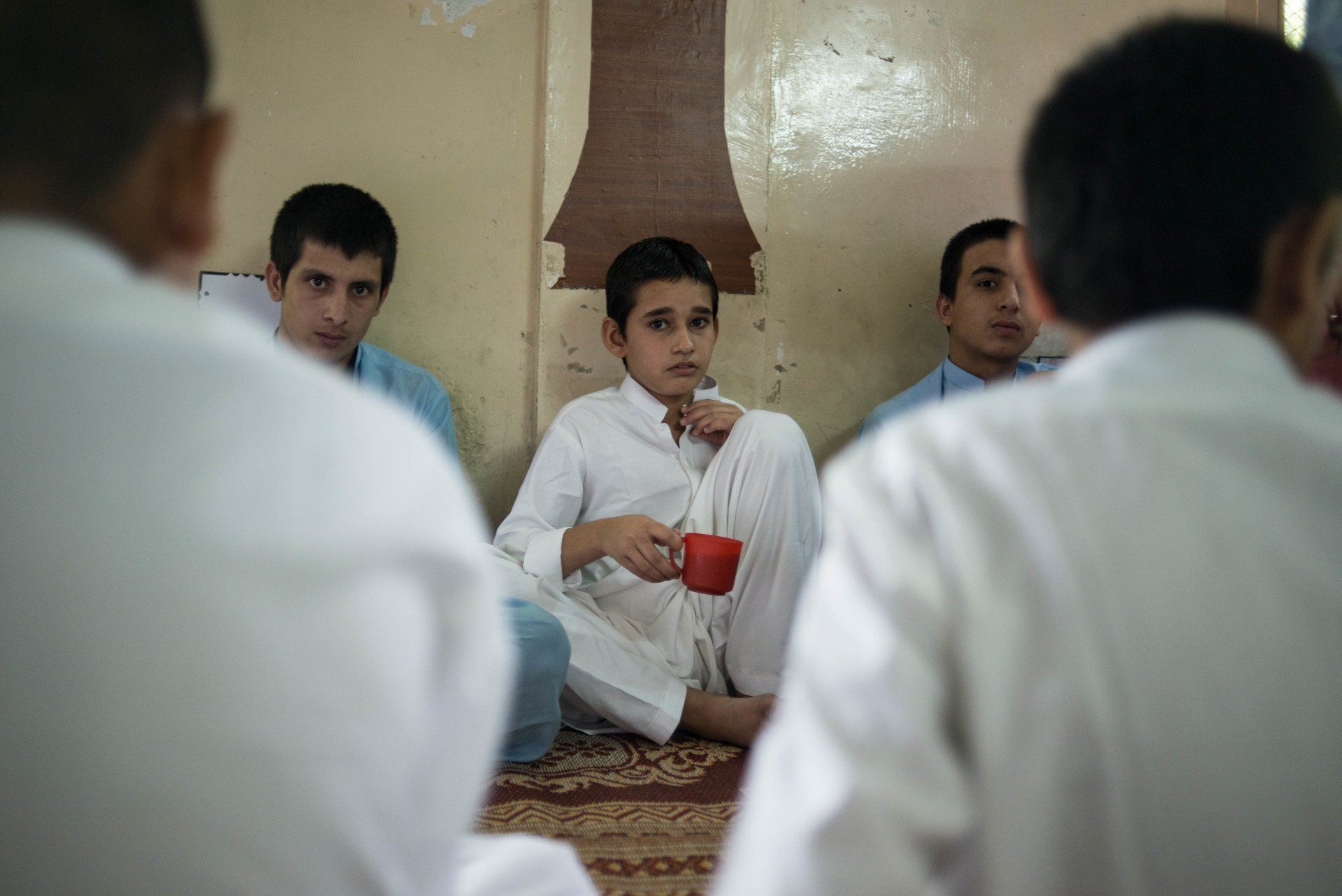
Young people are lured into drug use to escape their lives of poverty, deprivation and hopelessness. When DOST started in 1992, the drug users were living and dying on the streets with no recourse to treatment.
DOST started its street programme with burying the dead before they became food for the wild dogs. It also started drop in centres for street addicts as well as residential treatment and rehabilitation services for drug users.
DOST adopts a holistic approach with services based on the needs of the drug users .Through experience, DOST has developed a unique rehabilitation program to effectively eliminate drug dependence.
Street Reach-out
Teams of professionals go out daily to previously identified locations of drug users. They are given first aid, counselling and are motivated to come to the drop-in centres. This is the start of their recovery.
Drop-In Centres
Drop-In Centres have been established in urban and rural areas, refugee camps, tribal areas and Afghanistan. In these centres, the drug users are registered, given food, shelter and respite from the streets, and are provided facilities for washing, bathing, rest, and recreation. Drug use is banned, and they participate in therapeutic sessions comprising of lectures, counselling, and sharing of experiences. Based on achievement of set goals, they are then referred to the residential treatment centre.
Residential Treatment Centres
Drug addiction treatment is provided in the DOST Residential Centres as well as in the homes. This phase of treatment lasts for a minimum of 8 weeks and is comprised of 2 weeks of detoxification and 6 weeks of rehabilitation. After this period, they receive vocational skills training and undergo internships. This is all part of their rehabilitation and can last up to 6 months.During rehabilitation, therapy is aimed at Whole Person Recovery (WPR) - physical, mental, social, spiritual and economic. Peer support is key to rehabilitation and recovery, and those undergoing therapy form a supportive community for each other, which acts as a substitute family. The community, under staff supervision, is run on a Self Help basis, with duties divided among the peers in accordance with their strengths and weaknesses. In this therapeutic community, they also elect their own leaders and set personal goals for themselves. The achievement of tasks/goals builds their self-esteem, empowers them, and brings structure and discipline into their lives.
The drug user is not the only one affected by the addiction, it is the whole family, which is why DOST works with the family members,counselling them to cope with their own negative feelings and to provide a supportive environment for the drug user during and after their rehabilitation program.
Aftercare and follow-up
Good aftercare is a tool that helps drug users back into the community. The community has a crucial role to play in this final stage of the recovery. The Faith-Based approach has been the most successful, especially in the tribal areas. Religious leaders use their status in the community to help to identify the drug users, to send them for treatment, and upon their return, to mobilise the community to support them in their recovery process, thereby minimizing the chances of relapse. DOST resources are pulled together to educate the community surrounding the drug users, to allow them to play a pivotal role in their recovery, and re-building a society."A person is a person because he recognizes others as persons."
Desmond Tutu
HIV/ AIDS is found among drug users and street children and the general population. It is especially found among those classed as Injecting Drug Users (IDUs), who contract and transmit the virus through sharing syringes and equipment. It is also passed on through sex, which results in transmission to the wife, newborn, and sexual partners. DOST has established Voluntary Counselling and Testing Centres (VCT Centres) in different settings for the testing of HIV/AIDS, Hep B & C, and STIs (Sexually Transmitted Infections), and refers the HIV positive cases for Antiretroviral therapy (ART). During treatment, DOST continues to provide care and support to the client and their families.
Awareness sessions are regularly carried out in schools and other institutions to educate people about HIV/AIDS anddrug abuse.
